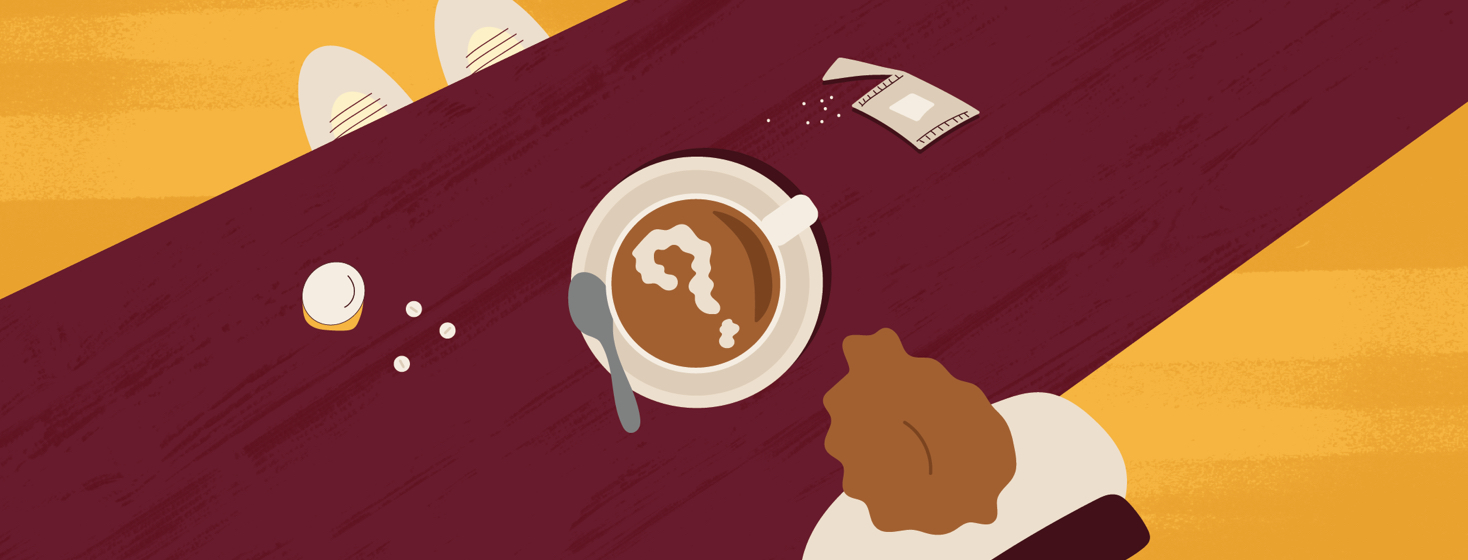Identifying Triggers for My Restless Legs Syndrome
I’ve had restless legs syndrome (RLS) my entire life. I remember being a wriggly little girl at the age of 6 - completely incapable of sitting still for more than a few minutes. When I was in my late 30s, I heard about RLS for the first time, and when I was in my 40s, I finally went to a doctor to describe my symptoms.
Researching RLS symptoms and treatments
Once I knew about RLS and had access to the internet, I researched symptoms and treatments. Part of treating it - for me - has been identifying triggers. There are definitely environmental issues that exacerbate my symptoms. Removing or minimising those triggers hasn’t cured the unpleasant sensations, but it has reduced the severity and, in combination with pharmaceutical aids, has given me a restfulness I never dreamed possible.
Food and beverage intake
Dietary intake is the simplest thing to modify. Well - sort of simple, depending on your level of commitment. Alcohol and stimulants like caffeine are well known for increasing restlessness - even in people who don’t have RLS. Alcohol isn’t just that gin and tonic after dinner; it can be hidden in things like desserts, chocolates, and pasta sauces. Keep an eye out if you know you’re especially sensitive.
Likewise, caffeine isn’t just found in a latte - tea, coffee, cola, energy drinks, and chocolate all have caffeine in varying quantities. If possible, go gently. Or not at all.
Refined sugars can cause worsening symptoms for some people - myself included. I find natural sugars in fruits and vegetables are all fine, but anything sweetened with sugar or honey can increase my symptoms. For some people, sensitivities and allergies to certain foods (varies between individuals) can possibly worsen RLS symptoms. For example, those with celiac disease may find gluten increases RLS.
Smoking
While I don’t personally smoke and never have, worsening RLS symptoms may be one more reason to consider quitting.
Movement
Movement - or lack thereof - can impact RLS. Sitting, lying down, or attempting to sleep are all well-known RLS triggers. The longer I try to stay still the more I move. Transportation is particularly stressful, with trains, planes and automobiles all causing RLS symptoms to worsen.
While it isn’t realistic to avoid transport altogether, there are ways of reducing the distress by stretching, staying distracted, and avoiding known triggers when possible.
Exercise and stretching on the other hand can relieve symptoms, providing the exercise isn’t overdone. I’ve found a short walk and stretching before bed eases the wriggling.
Medication
Medications can have a big impact on RLS symptoms. Stimulants and dopamine antagonists can make things much worse. In fact, anything that reduces dopamine levels might impact RLS - antihistamines, anti-emetics, antidepressants and anti-psychotics.
Often medications are essential so balancing RLS with other health conditions is an important conversation to have with your health provider. If there are no alternatives and taking the medication is necessary, it might be possible to adjust the timing of the dose. If not, then all we can do is manage the RLS symptoms with other lifestyle modifications and treatment options. This is definitely one of those “please discuss with your doctor” situations.
Environmental triggers
Environmental considerations can affect people differently - temperature, stress, fatigue. It’s a case of figuring out which things impact us individually. I prefer to be cooler, but some people prefer warmer. Stress makes everything worse so managing anxiety with mindfulness or meditation is helpful.
And fatigue makes everything worse - even stress. Fatigue is harder to manage as most of us aren’t tired by choice. But following good sleep hygiene principles is a good place to start. Being gentle and allowing myself to rest on tired days - without pushing myself to get everything done - definitely helps.
Clothing is another environmental consideration as anything too uncomfortable, either because the fabric is irritating or the fit isn’t quite right, is basically just another stressor for my body.
Other health conditions
The last things - which are difficult to manage but worth being aware of - are health conditions. There’s a whole list of conditions that can cause or exacerbate RLS. A few of the most well-known are:
- Anaemia or iron deficiency
- Diabetes
- Genetic predisposition
- Kidney disease
- Neurological abnormalities
- Obesity
- Pregnancy
- Parkinson’s disease
- Peripheral neuropathy
Generally speaking, there’s not much that can be done about medical conditions. But when discussing healthcare options with the doctor, it’s important to mention RLS as a symptom or comorbidity. When I was first diagnosed with RLS I kept a sleep diary (or as I called it at the time, lack-of-sleep diary).
This helped me identify triggers and was a useful tool when talking to my doctor about treatment options. Not all triggers can be avoided, but it’s always helpful to know what they are so we can manage them as best we can.
Do you know what triggers your RLS symptoms? Have you found ways to manage your triggers? We would love to hear your story! Share with us in the comments below.

Join the conversation